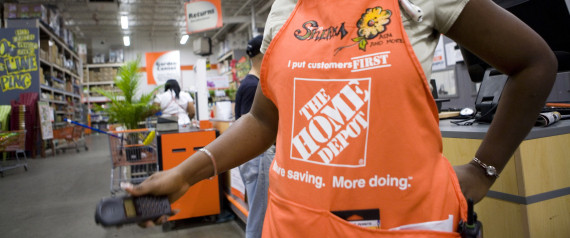by Mawer Investment Management, via The Art of Boring Blog
On January 31, 2017, we launched the Mawer Emerging Markets Equity Fund, bringing our tried and true “boring” investment strategy to these “exciting” markets.
Given the volatility and risks generally associated with emerging markets, some may ask “why there and why now?” There are a number of reasons. Emerging markets, which include a wide mix of countries coming into prominence, such as India, Brazil, and China, have collectively become a greater part of the global economy and represent a growing number of attractive investment opportunities. These markets generally share characteristics that have led to higher economic growth rates, such as positive demographics, improving productivity, and capital formation. Companies located in these countries are often well-positioned to take advantage of these favourable dynamics. Moreover, there are fewer investors turning over stones in emerging markets compared to developed markets such as the U.S., so these markets are less efficient—data shows a wider dispersion of stock returns (i.e., a greater difference between the best stock returns and the worst stock returns). As a result, active managers have more opportunity to add value.
My personal interest in emerging markets stems from a love of travel and a fascination for learning how others live. Shortly after finishing university, I went backpacking around Southeast Asia and found myself in Laos—one of the poorest countries in the world, where many people live as subsistence farmers, cultivating just enough rice to feed their own families. For a 24 year-old Canadian, it was eye-opening to see just how differently these people lived compared to North Americans. But while I loved the place and the people, from a young investor’s point of view—due to the stark contrast between our economies—nothing during this trip screamed “opportunity” or “potential”. That would change.
When I returned to Laos seven years later—this time with a much deeper understanding of the differences between developed and developing economies—I was shocked by the country’s transformation in such a relatively short time span. At the time (2013-2015) I was living in Singapore and travelling to almost every Asian country while researching emerging markets. And the changes I witnessed in Laos since my initial visit were dramatic. The country had very strong GDP growth and had made some large investments in major projects such as hydroelectric power. Now there were ATMs, bustling shops, and everyone seemed to be riding scooters. The progress demonstrated an undeniable capacity for both opportunity and potential as an emerging market.
I also observed that emerging markets today exhibit a lot of the same characteristics as Canada and the U.S. did in the past. From an investment point of view, you can foresee the trajectory of industrial development in these markets following a similar pattern over the next 10 to 20 years, much like we experienced in North America. As many people around the globe enjoy the Western lifestyle, this is a big investment theme with a long runway (although we must be careful not to expect everything to unfold in these markets in the same way it did in North America).
The Fund
As with all of our funds, the Emerging Markets Equity Fund focuses on companies with strong business models, excellent management teams, and attractive stock valuations. This approach differs from most mutual funds and index funds which often invest in the largest companies—companies that are not necessarily the best investment opportunities, i.e., Chinese state-owned banks or Russian energy companies.
Examples of the companies we look for and own include: Tencent (the “Facebook” of China), Clicks (the “Shoppers Drug Mart” of South Africa), and Linx (a Brazilian software company).
Until I went to China, I didn’t fully appreciate the impact of Google and Facebook’s withdrawal from that market due to censorship by the Chinese government. I experienced how much longer it took just to do basic things like check email and load international websites because everything was filtered or blocked. Tencent’s success as a domestic internet company stems from their position as a homegrown Chinese company and the trust afforded to them by their government—a competitive advantage I’ve witnessed firsthand.
Another holding we look on favourably is Clicks. They are quickly becoming the dominant drug store chain in South Africa. Clicks has already amassed a 25% market share and is on track to mirror its developed markets peers—like Shoppers Drug Mart in Canada or Boots in the U.K. We like what we’ve seen so far with their management team’s execution.
In Brazil, Linx provides big retailers with software that allows them to accept payments and interact with their credit card and inventory systems. In developed markets, every retailer would already have this technology, but in Brazil penetration is still very low. As a result, the company is growing at a high rate. Their advantage is that U.S. and international companies aren’t competing with them because it’s difficult to do business in Brazil and the software is specialized to adhere to local nuances (e.g., taxes, Portuguese language requirements, etc.). So although other markets are doing the same thing as Linx, they’re the local and more trusted option—a recurring theme in these markets.
As we evaluate companies to add to the portfolio, my years of experience with emerging markets has taught me to leave my comparisons, biases, and preconceived notions at home. Take retail shopping malls for example. As a Westerner, I tend to think of malls as a dying business model—after all, isn’t Amazon putting them all out of business? But in markets like the Philippines I discovered that malls are more than just a place to buy things; they are well established hubs for extended social interaction within Philippine society. The mall represents a safe, air-conditioned oasis filled with restaurants, movie theatres, and activities. This is where couples go on dates and families go for entertainment. Philippine malls are virtually always busy because they are ingrained in the society as a cultural destination as much as a consumer utility. Clearly my mental model of malls being a dying business does not necessarily apply here.
A Word of Caution
While traveling to exotic places can be fun for those who enjoy a sense of adventure, investing your money there is, of course, another matter entirely. Like any investment it’s important to know what you’re getting into. Investors considering an addition of emerging markets to their portfolio should expect higher risks commensurate with higher return expectations. The investors most suited for emerging markets are those with a higher risk tolerance and a long term horizon, and as part of a balanced portfolio.
And little sense of adventure wouldn’t hurt either.
“The real voyage of discovery consists not in seeing new landscapes, but in having new eyes.” — Marcel Proust
This post was originally published at Mawer Investment Management














